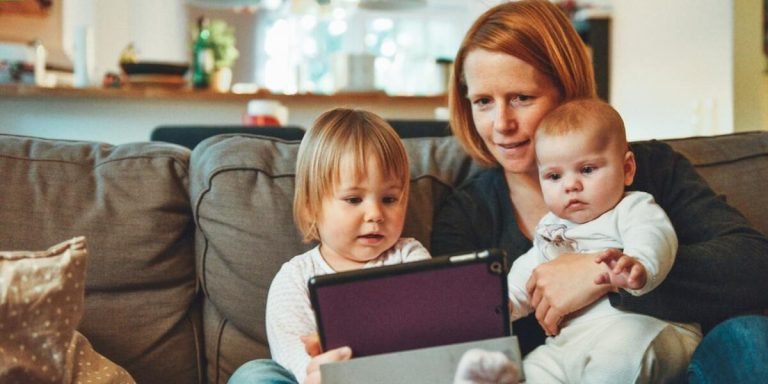Master’s Degree in Early Years Education: An Investment for Lifelong Learning
In an increasingly competitive educational environment, a master’s degree in early years education can provide parents and educators with the necessary expertise to guide children towards lifelong learning. This advanced qualification not only offers comprehensive insights into childhood developmental stages but also equips professionals with strategies for effective instruction and education management.
Whether you’re a parent engaged in home-schooling or an educator seeking enhanced knowledge, this program is designed to serve your needs. By diving deep into essential aspects of cognitive, emotional, social development during early years coupled with modern pedagogical approaches unique to home schooling circumstances; it aims at articulating efficient paths for facilitating lasting academic success from the onset.
Did you know?
Did you know that professionals with a Master’s Degree in Early Years Education often have higher earning potential and job satisfaction rate than their counterparts without this qualification? Studies show they’re also better equipped to foster the intellectual development of young children.
Understanding the Role of a Master’s Degree in Early Years Education
Choosing to pursue a Master’s degree in early years education can be a pivotal decision for individuals passionate about shaping young minds. This prestigious qualification opens up numerous avenues in the realm of home schooling and traditional education, enabling educators to craft engaging, age-appropriate curriculums that foster an intrinsic love for learning.
In our rapidly evolving world where 2023 sees many parents opting for homeschooling due their individual circumstances or beliefs regarding conventional educational systems – having such a degree becomes an invaluable asset. It equips you with advanced pedagogical techniques and contemporary teaching methodologies designed specifically considering children’s developmental stages from birth until eight years old.
The importance of structured learning during these critical early years cannot be overstated. The Masters’ program curriculum is tailored to understand this crucial phase deeply; it delves into child psychology, neurological development, societal influences on growth patterns among other topics underpinning childhood education theory and practice. Consequently, graduates are better positioned not only to adapt curriculum delivery according to each child’s unique needs but also frame instruction strategies fostering whole-child development – cognitive, social-emotional skills alike.
The Impact of Advanced Degrees on Teaching Methodologies
Having a master’s degree in early years education significantly influences teaching methodologies. It equips educators with advanced tools and theories, enhancing their capacity to provide holistic learning experiences for young children.
Firstly, this advanced educational qualification enables teachers to understand the psychological dimensions of childhood development better. With that knowledge at hand, they can adapt their teaching styles accordingly by creating engaging and tailor-made lesson plans focusing on each child’s unique needs.
Secondly, as part of gaining a master’s degree in early years education, teachers are taught how to design experiential learning environments effectively. This involves creating an atmosphere where students freely explore concepts through inquiry-based activities rather than traditional methods like rote learning or recitation.
Thirdly, it allows professionals involved in homeschooling & education to apply modern pedagogical approaches more efficiently. The ability to incorporate e-learning technologies into daily instructions is one such example which has become increasingly relevant given today’s digital age coupled with the pandemic aftermath affecting 2023 schooling norms.
Additionally, having an advanced degree aids educators in fostering stronger relationships not just with youngsters but also parents who play integral roles particularly during homeschooling scenarios imparted due diligence from COVID-19 impacts.
Career Advantages for Educators Specializing in Early Childhood
Gaining a master’s degree in early years education is not just an academic achievement, but it also opens up newer avenues for career advancements. Today, let’s delve into the tangible advantages that this specialized qualification has to offer.
Firstly, expertise matters. A master’s degree deepens your understanding of child development and education strategies specific to younger learners. With this knowledge gain educators are equipped with the skill sets required by employers across various educational institutions.
Secondly, boosting credibility can never be underestimated. This advanced credential speaks volumes about commitment towards childhood education which consequently inspires trust among parents and colleagues.
Thirdly comes professional growth opportunities – both vertical and horizontal.
A vertical climb often translates into leadership roles such as principal or director positions within schools or preschools giving you ample room for administrative influence over curriculum decisions.
On another hand horizontality allows diversification; branches open out towards curriculum consultants, policy advisors focusing on home school regulations – all lucrative options centered around shaping future learning experiences.
Another key advantage lies in income prospects- higher degrees usually command better salaries!
According to data from The US Bureau of Labor Statistics (2023), individuals holding a Master’s Degree typically earn 19% more than those armed only with a Bachelor’s degree making financial remuneration rewarding alongside personal fulfillment!
Finally yet importantly is flexibility specifically relevant amidst rising preference for homeschooling amid global uncertainties.
Curriculum Design and Implementation in Home School Settings
Curriculum design and implementation is a critical component in all types of education. In the framework of home schooling, especially when parents are preparing their children for future formal learning like a master’s degree in early years’ education, it carries an even more profound significance.
It starts with understanding your child’s educational needs, interests and capabilities to create a balanced curriculum that integrates key elements from comprehensive syllabi. Given the flexibility offered by homely setting, customizing subject matters according to student’s preference can lead to enriched overall development as they find relevance between their courses and practical life scenarios.
In 2023 particularly, amid ever-evolving technology dynamics which made remote-learning mainstream option worldwide; designing lessons around digital preparedness has emerged as imperative aspect. As real-time virtual interaction became normative practice not just during crisis but also afterwards due its benefits on convenience & accessibility fronts; incorporating activities encouraging skills such as self-discipline or time management within curriculum becomes sought-after route for effectively nurturing tomorrow’s leaders aspiring master’s degree in early years’ education.
Several online resources covering broad spectrum subjects can offer substantial support while piecing together optimal course plan aligning towards academic objectives closely resembling traditional school structure where sequential progression through grades is denoted.
Structuring Your Home School to Align with Early Years Educational Standards
Establishing a home school curriculum that aligns with early years educational standards can often seem like an uphill task. But, armed with knowledge from a master’s degree in early years education and some practical tips, you can design and implement a robust learning environment for your child right at home.
To begin this journey of homeschooling, clarity is key. Identify what each standard means and how it relates to the age and capabilities of your young learner. Don’t be intimidated by jargon or complex language; break them down into achievable academic milestones that resonate with your child’s developmental stage.
A study plan that centers around thematic units makes for engaging teaching-learning experiences while maintaining adherence to set standards. Be it exploring rainforests or diving deep into history through archaeological adventures – integrate literacy skills, numeracy concepts as well as social-emotional learning within these themes using varied resources such as books, tech tools or experiential games.
Even though you might not have formal classroom settings at play here, consistency cannot take a back seat in any form of education let alone homeschooling.
Adopt schedules but allow flexibility so children get used to routines yet feel free enough to explore their curiosities beyond textbooks!
Incorporating Developmental Psychology into Your Teaching Approach
Understanding developmental psychology is a crucial aspect of effective teaching, especially for those parents who have decided to home-school their children. The knowledge gleaned from pursuing a master’s degree in early years education can be extraordinarily helpful when it comes to incorporating elements of this discipline into your curriculum design and implementation.
Firstly, bear in mind that developmental psychology focuses on the physical, cognitive, social and emotional development of humans throughout our lifespan. It enables us to comprehend how a person changes over time due to various influences like genes, environment and experiences. Utilizing these insights within your homeschooling efforts can greatly enhance educational outcomes.
One key area where you could incorporate developmental psychology is through personalized learning strategies tailored according to each child’s developments stage. Children at different ages process information differently – understanding these subtleties will allow you elaborate richer lessons plans filled with activities suitable for supporting each particular phase.
For instance, younger children primarily learn through play; thus integrating playful tasks such as jigsaw puzzles or role-playing games help reinforce new concepts more effectively than traditional desk-bound exercises might do so.
Older kids experience enhanced abstract thinking abilities; hence they would benefit from projects requiring problem-solving or critical analysis skills like scientific experiments or literary debates.
Moreover an understanding of developmental stages also helps recognize any potential learning difficulties earlier rather than later which means remedial measures may be implemented sooner thereby optimizing overall academic progress.
Assessing Child Progress Without Traditional Classroom Benchmarks
In the ever-evolving landscape of early childhood education, particularly in light of recent shifts toward home schooling, gauging child progress can represent a unique challenge. This is especially true for parents who have chosen to pursue a master’s degree in early years education and are looking forward to implementing innovative teaching methodologies at home without rigid traditional benchmarks. However, it should be comforting to know that assessment does not always equate with standardized tests or hierarchical grading systems.
The modern approach prioritizes understanding each child’s individual learning journey over comparing them against predefined standards. As educators or parent-educators armed with advanced knowledge through their master’s programs in early years education commence this Herculean task from their homes; they focus on observing natural interactions, daily activities such as playtime tasks completion or exploratory behaviors which offer hidden cues about cognitive development.
But how exactly do we quantify this kind of growth? In lieu of objective classroom measures like quizzes and report cards, at-home educators can utilize tools like detailed logs recording improvements overtime – both academic and behavioral aspects included – while keeping track of emerging skills alongside challenges faced by children during various interactive sessions.
Therefore, assessing children under non-traditional setups calls for an adaptive mindset where conventional evaluation metrics may no longer hold relevance. Despite its complexities, once mastered (pun intended), these strategies endowed by your Master’s Degree curriculum could unlock new dimensions into comprehending your wards’ unique tagging trails left behind during their initial learning paths.
Developing Customized Assessment Tools for Young Learners at Home
Assessing children’s progress at home can be a complex task. After all, traditional benchmarks used in classroom settings may not apply due to the uniqueness of homeschooling education. This is where having a master’s degree in early years’ education becomes instrumental for parents.
To begin with, it hinges on creating customized assessment tools fit for your child’s learning style and pace. Firstly, acknowledge that every learner is unique; thus their rate of grasping concepts will differ – an aspect captured adequately by personalized assessment tools.
It starts with understanding what you are assessing – whether knowledge acquisition or skill development? Are they comprehending mathematical operations well enough? How effective has been their reading program so far?
Once these goals are clear, create short quizzes or games as part of routine activities. For instance, if teaching language skills such as vocabulary building and pronunciation practice could involve scrabble game sessions while recording how many new words they learned each time.
Utilizing Technology to Track and Enhance Learning Outcomes
In 2023, the role of technology in childhood education has become even more prominent and indispensable. Parents and educators employing home schooling methods often find themselves facing the question: how can we monitor a child’s progress without traditional benchmarks? One solution lies within our grasp – using technological tools which are now readily accessible.
The key to tracking early learning outcomes effectively, is to integrate technology into your teaching patterns. This allows consistent observation of your child’s development at each stage – an approach advocated by those with a master’s degree in early years education.
There are several ways that this integration can be achieved:
Secondly you could leverage mobile applications available these days offering features like task creation/timelines/event calendars meant for planning daily or weekly educative activities & monitoring them actively as well as passively.
Thirdly through video calls or conferences parents/educators can observe & evaluate children’s non-verbal responses giving insights into social-emotional aspects along with cognitive abilities too during distance or remote education periods.
Remember though not entirely replacing physical classrooms/entities; Utilizing such solutions makes homeschooling efficient yet personalised suiting individual kids’ styles/paces overcoming challenges thrown by orthodox school setups.
Conclusion
In a nutshell, pursuing a master’s degree in early years education is like stocking up on the most vital tools and techniques that ensure lifelong learning for our youngsters. It goes beyond ticking off an educational milestone; it’s about understanding how young minds work, nurturing them to their fullest potential and ultimately shaping the future of society.
As you consider this fulfilling pathway, we invite you to explore more of our website. We’re packed with invaluable resources dedicated to childhood education as well as comprehensive support for both parents and educators alike. Let us partner together in turning every nugget of wisdom gained from your master’s degree into impactful lessons for those tiny innovators we dearly cherish!







